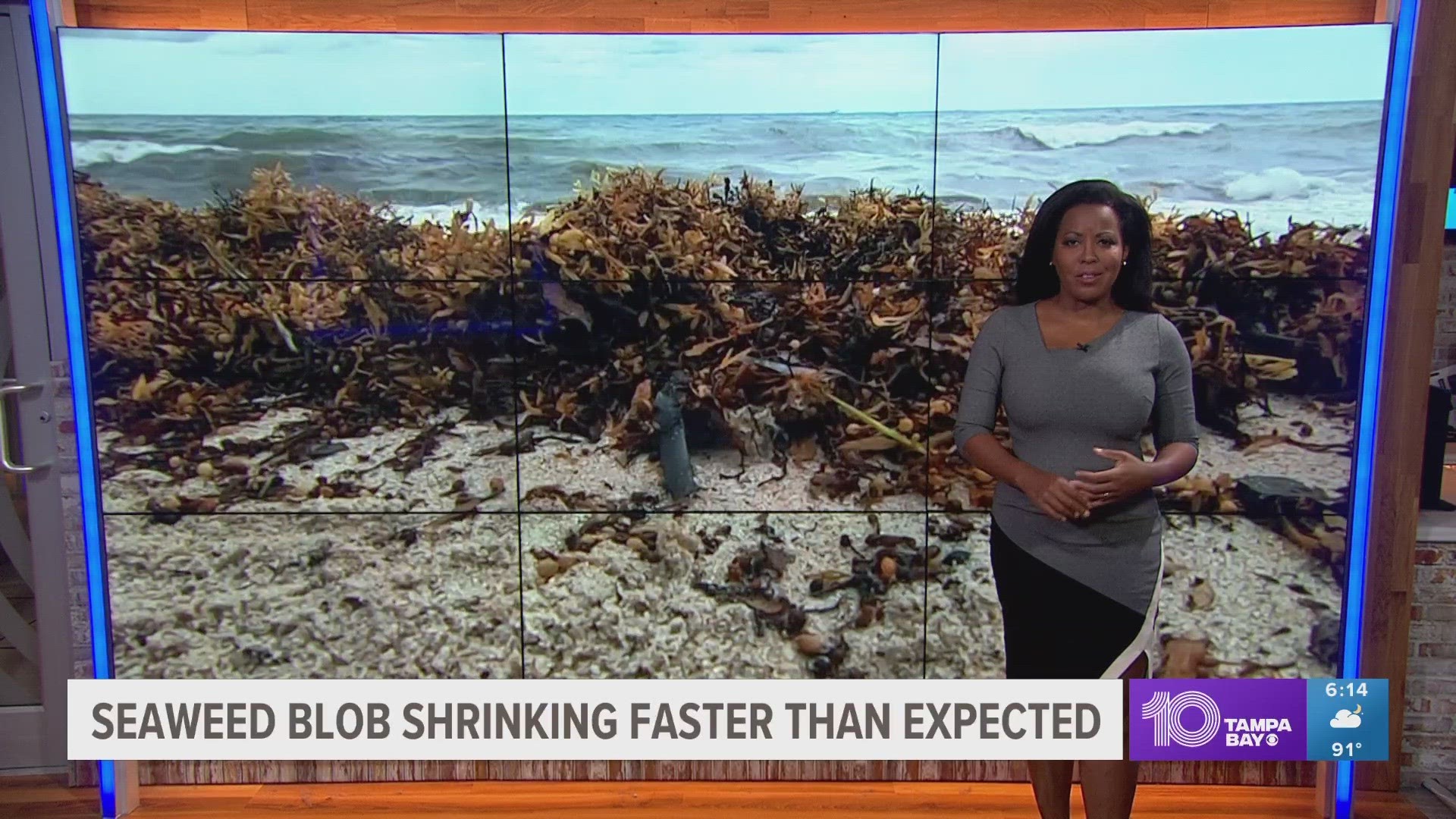TAMPA, Fla. — Take a deep breath, Florida beachgoers. The big, smelly seaweed blob that was washing up on our beaches has drastically shrunk.
The record-breaking mass of sargassum seaweed, known as the Great Atlantic Sargassum Belt, shrunk by 75% last month in the Gulf of Mexico, according to a report from the University of South Florida.
Researchers wrote that the sudden shrinkage in June was "beyond expectation" after they saw only a slight decrease (about 15%) in the seaweed mass in May.
"This trend may continue in the next 2-3 months, which should be good news to the residents living in the Florida Keys and east coast of Florida," the report reads.
This doesn't mean that the seaweed wash-ups will be gone altogether, but it does mean they'll be smaller and less frequent.
Not much changes for us here in the Tampa Bay area; we tend to get spared by these blooms that ride along the Gulf Stream, which runs around Cuba and past the Keys to Florida's east coast.
This same mass set records back in April as possibly the largest seaweed bloom ever recorded, according to USF researchers.
While it's not clear exactly what caused it to shrink, scientists say changes in nutrients, rainfall and wind conditions usually contribute to the fluctuating size of the mass.
“The winds were stronger than usual” this June in the Gulf and Caribbean, USF researcher Chuanmin Hu told WUSF. “Those winds may dissipate sargassum or even make them sink. That’s our speculation.”
Sargassum isn't harmful and is actually an important habitat for the sea life that have adapted to rely on the floating algae, such as shrimp, crab, sea turtles and tuna.
But it does emit a rotten egg-like odor, which stinks for beach tourism and local businesses that rely on it.
“By the time it reaches Florida, if it does reach Florida, the amount will be minimal,” Hu said about the remaining seaweed. “That means pretty much that the sargassum season for Florida is gone.”
10 Tampa Bay Meteorologist Tyler Moore contributed to this report.

